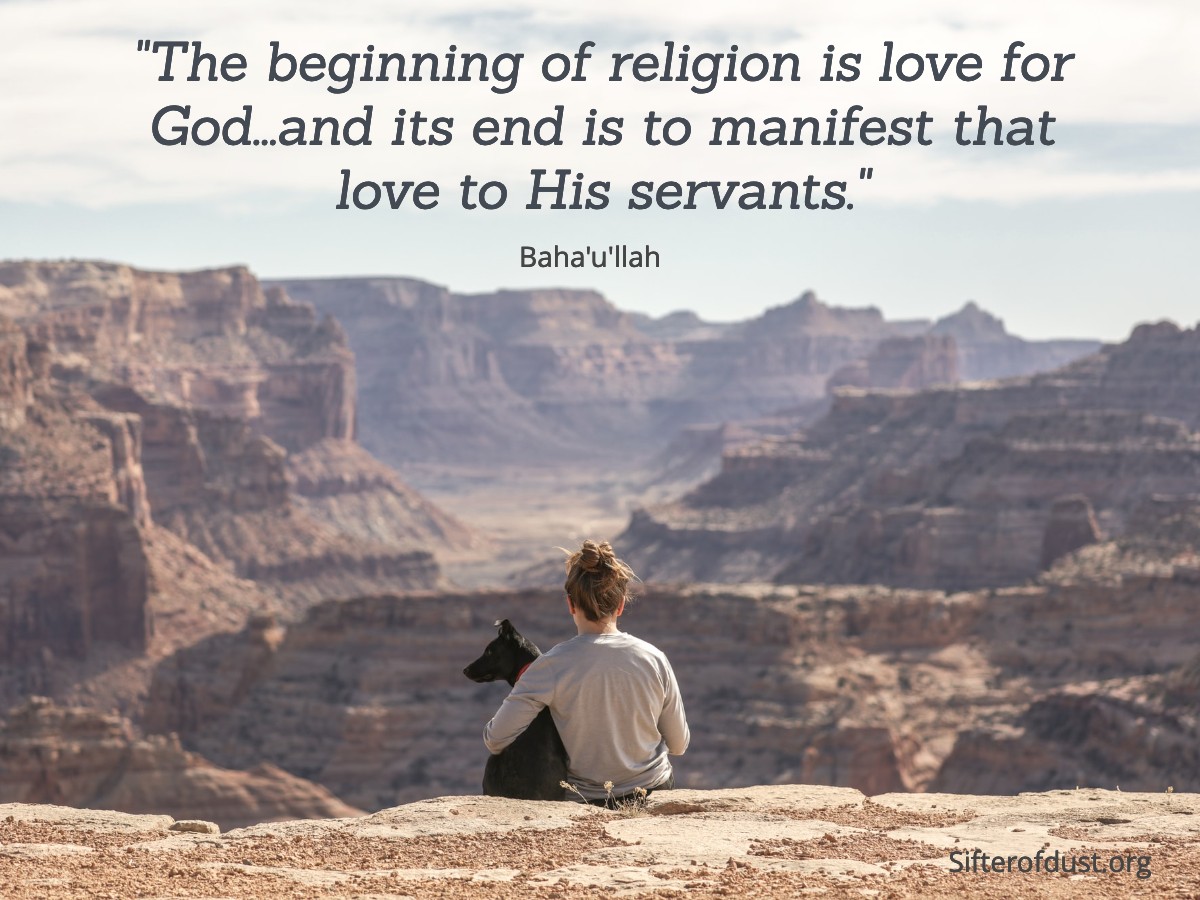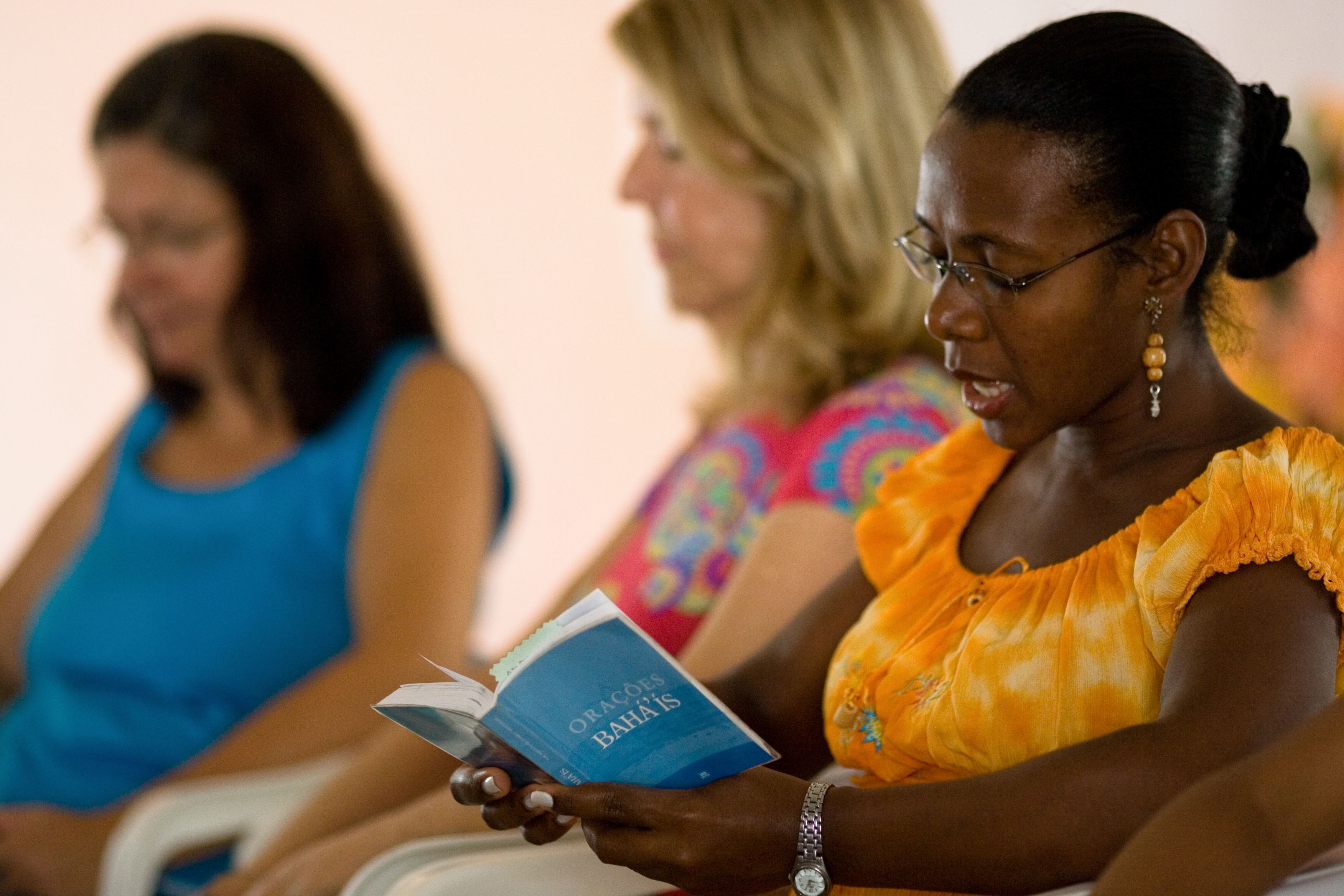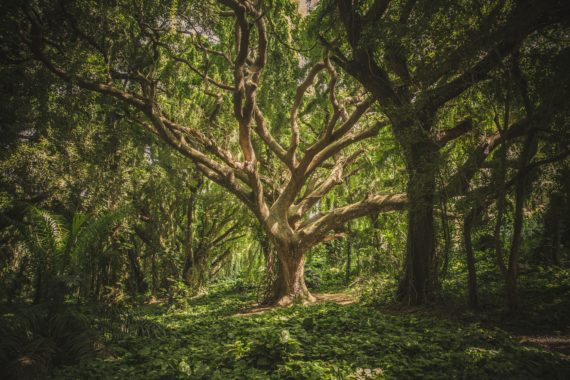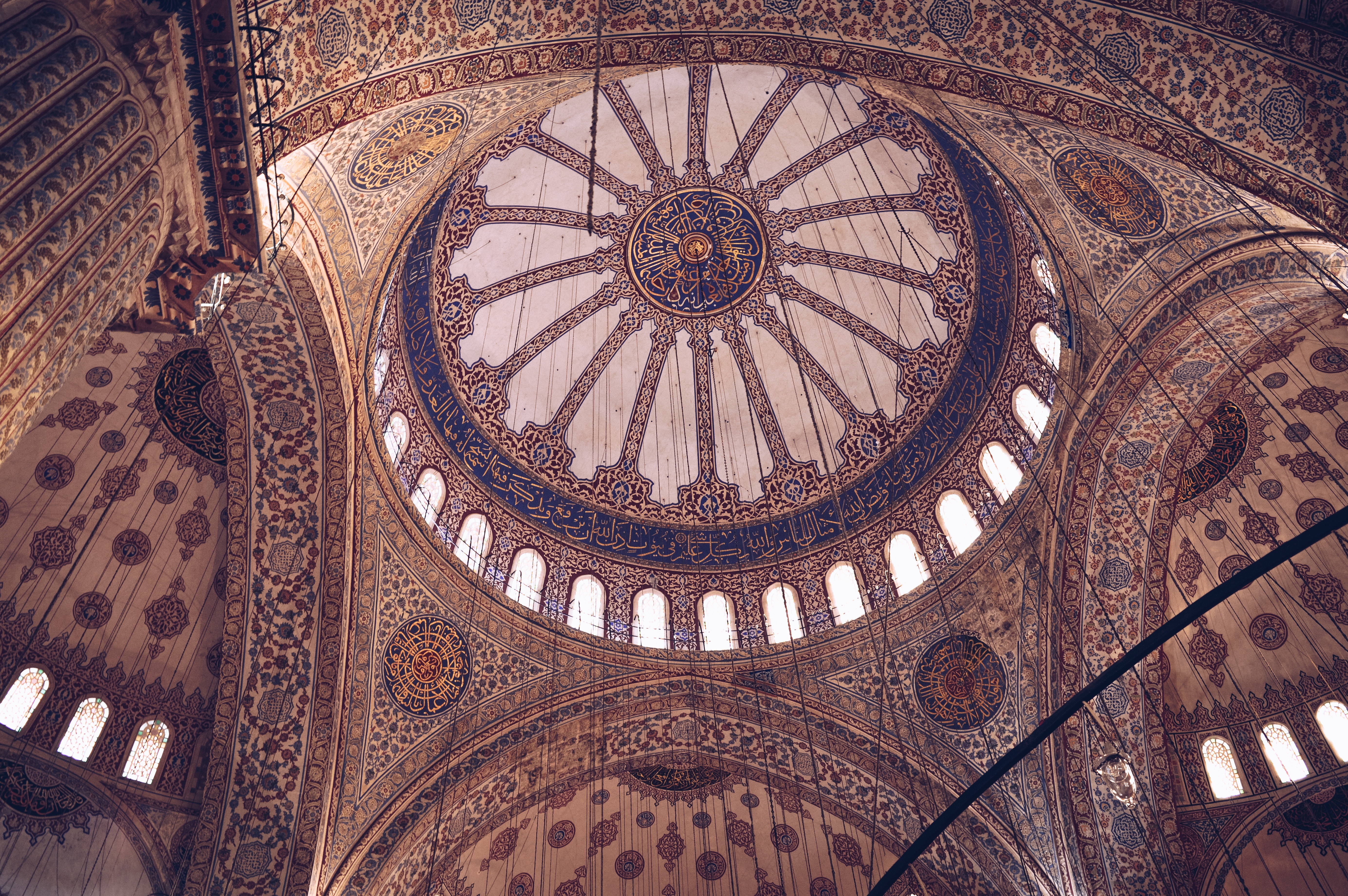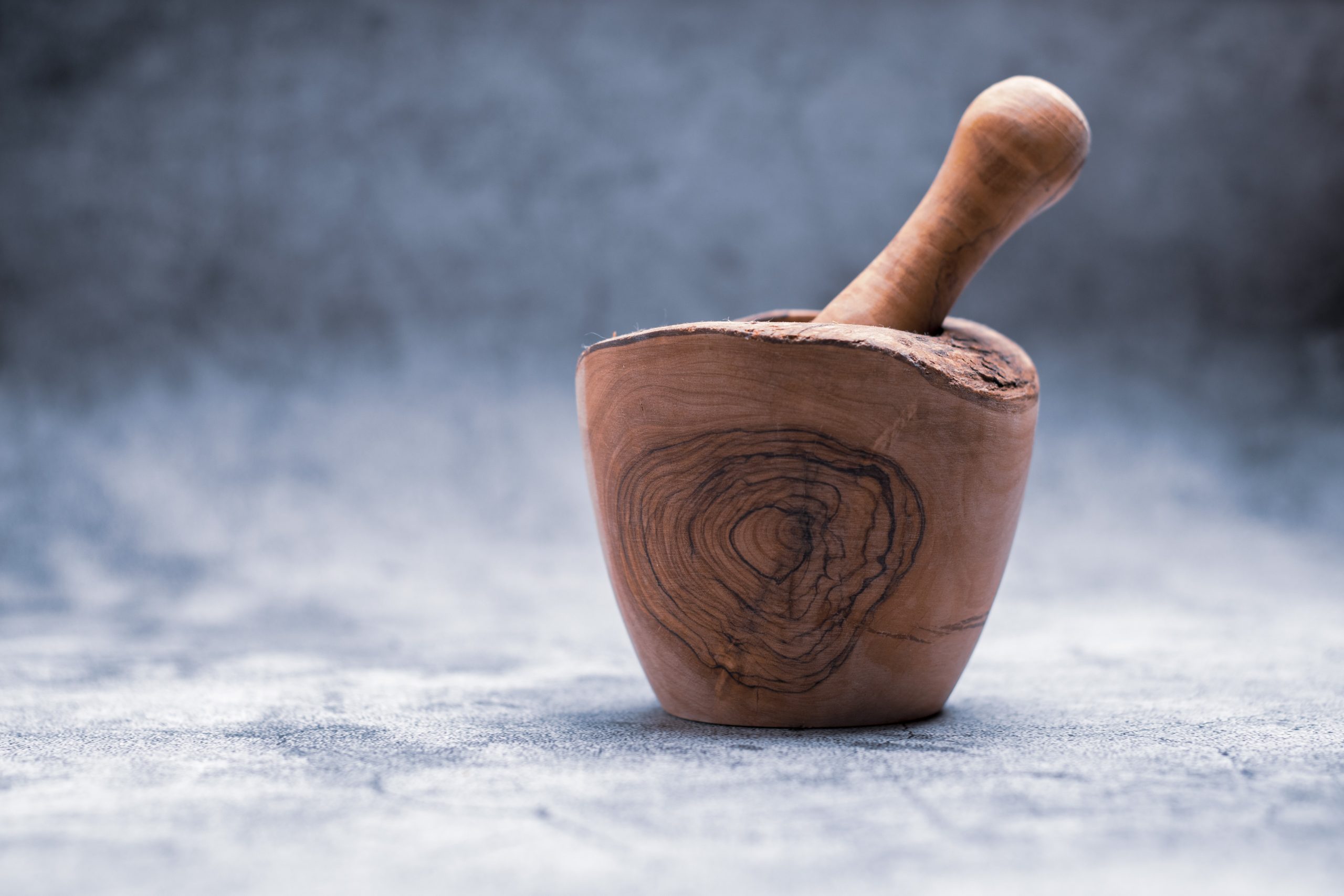This beautiful quote of Baha’u’llah marks a transition in our posts for the 19 Day Challenge. Religion is meant to transform hearts, and then have us manifest that transformation in the world with everything we do. In these last days, we will focus on the guidance about how to act, to express our faith in service.
Comments closedMonth: March 2021
Being Still
One of the most consistent teachings of each of the great religions of humanity is the importance of calming our mind and heart in order to connect with ourselves and the world on a deeper level. “Be still and know that I am God” say the Psalms. This has never been more important than it is now- in our frenetic, information rich world- where the “transient” aspects of life are continuously thrust before our eyes. It’s easy to lose ourselves in it all.
To find the “eternal”, we need to do some shutting down of the “transient”. The passage below- a Hidden Word of Baha’u’llah- reflects this theme. It is presented musically by the Baha’i musician Grant Hindin Miller. Though the music is beautiful and aids in memorization, take some time to reflect on the meaning and depth of the words. Enjoy!
O SON OF DUST! Blind thine eyes, that thou mayest behold My beauty; stop thine ears, that thou mayest hearken unto the sweet melody of My voice; empty thyself of all learning, that thou mayest partake of My knowledge; and sanctify thyself from riches, that thou mayest obtain a lasting share from the ocean of My eternal wealth. Blind thine eyes, that is, to all save My beauty; stop thine ears to all save My word; empty thyself of all learning save the knowledge of Me; that with a clear vision, a pure heart and an attentive ear thou mayest enter the court of My holiness.
(Hidden Words of Baha’u’llah)
Music by New Zealand-based Baha’i musician Grant Hinden Miller. Entire album available for purchase at Bahaimusicstore.com. Photo by Vincent van Zalinge on Unsplash
Feeding your soul
The passages we’ve read in the last two days were intended to get us thinking about the spiritual power and beauty that lies in each of us. Hopefully, they and the others presented previously have made it clear that there is a treasure worth searching for. Another metaphor that is used in the sacred scriptures is that of a candle, or an inner spiritual light that exists within each of us. Anyone who has ever tried to start a real fire knows that, once you’ve got it lit, you need to feed it or it quickly goes out. Baha’u’llah referred to this in the passage yesterday: “Let the flame of the love of God burn brightly within your radiant hearts. Feed it with the oil of Divine guidance, and protect it within the shelter of your constancy.”
But how do we feed it? All the scriptures refer to feeding your spirituality as a daily process, often explicitly through prayer and meditation. Jesus Christ gave His followers a specific prayer to memorize and say (“The Lord’s Prayer”) and the first chapter of the Quran is a prayer. Baha’u’llah literally revealed dozens if not hundreds of prayers for Baha’is to say, often in the context of a letter or Tablet to an individual believer.
The striking element common to all the prayers revealed for our use by these great Messengers of God is that they explicitly focus on spiritual things, as opposed to anything material. For many people critical of prayer, it seems like an “unscientific” practice, in that you are asking natural forces to give you something you need- often something material- or for some event to happen. It’s true that prayer can degenerate into an almost superstitious practice, so it’s worth focusing on what the revelations of God have actually taught us about prayer. When we do that, we see that the prayers that are taught by Christ, Muhammad, and Baha’u’llah are never about material things.
In one of His Tablets, Baha’u’llah reveals a prayer that says something remarkable:
“Whatever duty Thou (God) hast prescribed unto Thy servants of extolling to the utmost Thy majesty and glory is but a token of Thy grace unto them, that they may be enabled to ascend unto the station conferred upon their own inmost being, the station of the knowledge of their own selves.”
Prayer then, is a practice in which we engage to bring us closer to our own true selves.
When we study prayer thoughtfully, we recognize that it is actually an expression of the true reality of our situation as human beings. All of us, however great and talented we may be, have had an utter dependence on other people and forces that are beyond our control for us to achieve anything. We were all dependent on our parents or whoever gave of themselves to raise us. The natural forces that caused us to be here, that each religion teaches are ultimately the expression of the Will of God, were something we also had no control over. It took 13 billion years of the evolution of matter to bring the human race into being. Each of us is the culmination of a vast process of physical, social, and spiritual evolution. “Thankfulness” therefore reflects the reality of our situation, whereas someone who praises themselves all the time, outwardly or inwardly, and is focused only on their achievements in isolation, is actually reflecting his own ignorance.
Finally, sometimes when it comes to spiritual truths, up is down and last is first. By putting our heads to the ground in prayer, we are actually raising ourselves up spiritually and making ourselves stronger. Like the U2 song says- “If you want to kiss the sky, better learn how to kneel”. (The same is true of material wealth, as expressed by Jesus in the passage yesterday, more can mean less!)
The passages we will focus on in the next couple days will enlarge on these themes. We will also present some beautiful music, starting with a prayer of Baha’u’llah set to music, one known to Baha’is as “Create in me a pure heart”.
For Jews and Christians, it is similar to Psalm 51, which starts as follows-
“Create in me a pure heart, O God, and renew a steadfast spirit within me. Do not cast me from your presence or take your Holy Spirit from me.”
Baha’u’llah’s prayer starts similarly but is different overall. Both are beautiful.
“Create in me a pure heart, O my God, and renew a tranquil conscience within me, O my Hope! Through the spirit of power confirm Thou me in Thy Cause, O my Best-Beloved, and by the light of Thy glory reveal unto me Thy path, O Thou the Goal of my desire! Through the power of Thy transcendent might lift me up unto the heaven of Thy holiness, O Source of my being, and by the breezes of Thine eternity gladden me, O Thou Who art my God! Let Thine everlasting melodies breathe tranquillity on me, O my Companion, and let the riches of Thine ancient countenance deliver me from all except Thee, O my Master, and let the tidings of the revelation of Thine incorruptible Essence bring me joy, O Thou Who art the most manifest of the manifest and the most hidden of the hidden.
Special thanks to Baha’i Blog and to Claire McGrail for illuminating this prayer with her beautiful voice.
Meditation
Another pathway to spiritual growth is meditation, which is technically different than prayer, though the two are very much intertwined in practice. Meditation is the process of reflection and inner exploration that is part of every religion. Some of the eastern religions, like Buddhism and Hinduism, have developed meditation practices that are specific and these can be valuable to assist in the process, but meditation itself is universal and not specific to any particular religion.
The Prophet Muhammad is reported to have said “One hour’s reflection is equivalent to 70 years of pious worship” and his son-in-law Ali Ibn Talib said that “contemplation invites humanity towards good deeds and performance”. Baha’u’llah described it as an “ideal mine”, saying that the “source of crafts, sciences, and arts is the power of reflection”. Meditation and reflection is the opposite of “heedlessness” where you are immersed in your material desires and aren’t attentive to spiritual and moral principles. Indeed, one of the fruits of meditation is a quality known as “mindfulness” which has been shown to have many benefits, both for health and overall well-being.
In our busy world, with the distractions of our cell phones and all the elements that characterize our modern world, we all develop a little “attention deficit disorder”, where its hard to focus and look inward. Psalm 46 says to “Be still and know that I am God”. Some of the greatest challenge is just to remember to take the time, be still and undistracted, and connect with something Higher than yourself. Some of the passages we share in the next several posts will reflect this theme.
One of the distinctive features of the messages of Christ, Muhammad, and Baha’u’llah is the emphasis on the “Word of God”. The emphasis was likely there in earlier revelations as well, particularly the Hebrew scriptures, but the widespread use of writing is historically recent, so revelations before 2000 years ago would have been passed down through oral traditions and song. Christians regarded Christ as the “Divine Logos” or “Word of God” as it states in the first chapter of the Gospel of John- “In the beginning was the Word”, emphasizing that the spirit of Christ, as encapsulated in his words and his person, had transcendent qualities that went well beyond the actual words and person. This idea flowered in Islam, as the words of the Quran were regarded as the most sacred thing in existence. Baha’u’llah described the Word of God in similarly exalted terms, stating it was the “king of words” and it’s “pervasive influence is incalculable”. Indeed, He likens it to the creative energies that exist in all things, and are manifest in nature, and we can draw on those creative energies by meditating on the Word of God. Baha’is sometimes engage in “passage meditation” where you reflect on the particular meaning of a passage from the “Word of God”, drawing on its creative energies to transform your soul.
There is no doubt that these words, as reflected in all the sacred scriptures of all three of these great religions, have tremendous spiritual power. Their outer effects can be seen in the churches and mosques that dot the landscape of every country- over 300,000 churches in the US alone. The largest Muslim country in the world, Indonesia, has over 800,000 mosques. All of those were built by the spiritual energies of the words in their scriptures. But you don’t have to look outwardly to see their effects. It is better to feel them yourself, by meditating on the meanings of the Words of God and see their impact on your life.
We’ll leave you with one passage from Baha’u’llah, which adorns the first pages of every Baha’i prayer book, encouraging us to connect with the Word of God as revealed through the great revelations of God as a daily practice.
“Intone, O My servant, the verses of God that have been received by thee, as intoned by them who have drawn nigh unto Him, that the sweetness of thy melody may kindle thine own soul, and attract the hearts of all men. Whoso reciteth, in the privacy of his chamber, the verses revealed by God, the scattering angels of the Almighty shall scatter abroad the fragrance of the words uttered by his mouth, and shall cause the heart of every righteous man to throb. Though he may, at first, remain unaware of its effect, yet the virtue of the grace vouchsafed unto him must needs sooner or later exercise its influence upon his soul. Thus have the mysteries of the Revelation of God been decreed by virtue of the Will of Him Who is the Source of power and wisdom.”
Photo by Holger Link on Unsplash
How to Pray
From the Gospel of Matthew
“You have heard that it was said, ‘Eye for eye, and tooth for tooth.’ But I tell you, do not resist an evil person. If anyone slaps you on the right cheek, turn to them the other cheek also. And if anyone wants to sue you and take your shirt, hand over your coat as well. If anyone forces you to go one mile, go with them two miles. Give to the one who asks you, and do not turn away from the one who wants to borrow from you.
“You have heard that it was said, ‘Love your neighbor and hate your enemy.’ But I tell you, love your enemies and pray for those who persecute you, that you may be children of your Father in heaven. He causes his sun to rise on the evil and the good, and sends rain on the righteous and the unrighteous. If you love those who love you, what reward will you get? Are not even the tax collectors doing that? And if you greet only your own people, what are you doing more than others? Do not even pagans do that? Be perfect, therefore, as your heavenly Father is perfect.
“Be careful not to practice your righteousness in front of others to be seen by them. If you do, you will have no reward from your Father in heaven.
“So when you give to the needy, do not announce it with trumpets, as the hypocrites do in the synagogues and on the streets, to be honored by others. Truly I tell you, they have received their reward in full. But when you give to the needy, do not let your left hand know what your right hand is doing, so that your giving may be in secret. Then your Father, who sees what is done in secret, will reward you.
“And when you pray, do not be like the hypocrites, for they love to pray standing in the synagogues and on the street corners to be seen by others. Truly I tell you, they have received their reward in full. But when you pray, go into your room, close the door and pray to your Father, who is unseen. Then your Father, who sees what is done in secret, will reward you. And when you pray, do not keep on babbling like pagans, for they think they will be heard because of their many words. Do not be like them, for your Father knows what you need before you ask him.”
Prayer
From the Writings of the Bab-
“Be thou for God and for His creatures even as God hath been for God Himself and for His creatures. Just as God hath verily created thee out of nothing, in like manner thou must adore Him in utter devotion, for the sake of His Countenance, without desire for reward or fear of punishment. Act likewise in all conditions and with all manner of phenomena.
Shouldst thou unlock this gate to thy heart, thou wouldst assuredly be adorned with the virtues of the All-Merciful. Then, were all the people to wrong thee, thou wouldst forgive them, and indeed, do good to them, even as God, glorified be He, provides through His grace those who have ungratefully repudiated Him. Thus apply the same maxim to all phenomena and all matters.”
From the Quran-
Verily I am God: there is no god but Me, so serve Me only, and establish regular prayer for celebrating My praise.
Call on your Lord humbly and secretly, surely He does not love those who exceed limits.
Those who remember God, standing and sitting and on their sides, and reflect upon the creation of the heavens and the earth: “Our Lord, Thou hast not created this in vain. Glory be to Thee!”
From the Gospel of Luke-
To some who were confident of their own righteousness and looked down on everyone else, Jesus told this parable: “Two men went up to the temple to pray, one a Pharisee and the other a tax collector. The Pharisee stood by himself and prayed: ‘God, I thank you that I am not like other people—robbers, evildoers, adulterers—or even like this tax collector. I fast twice a week and give a tenth of all I get.’
“But the tax collector stood at a distance. He would not even look up to heaven, but beat his breast and said, ‘God, have mercy on me, a sinner.’
“I tell you that this man, rather than the other, went home justified before God. For all those who exalt themselves will be humbled, and those who humble themselves will be exalted.
Special thanks to Baha’i Blog and to Luke Slott for this wonderful song. All Luke’s music can be found at Lukeslott.com
The Beauty of Prayer
There is nothing sweeter in the world of existence than prayer. Man must live in a state of prayer. The most blessed condition is the condition of prayer and supplication. Prayer is conversation with God. The greatest attainment or the sweetest state is none other than conversation with God. It creates spirituality, creates mindfulness and celestial feelings, begets new attractions of the Kingdom and engenders the susceptibilities of the higher intelligence. –`Abdu’l-Bahá
Photo by Senor Sosa on Unsplash, Blue Mosque in Istanbul Turkey
Out of the Wastes of Nothingness
O SON OF BOUNTY! Out of the wastes of nothingness, with the clay of My command I made thee to appear, and have ordained for thy training every atom in existence and the essence of all created things. Thus, ere thou didst issue from thy mother’s womb, I destined for thee two founts of gleaming milk, eyes to watch over thee, and hearts to love thee. And My purpose in all this was that thou mightest attain My everlasting dominion and become worthy of My invisible bestowals (Hidden Word of Baha’u’llah)
Comments closed
The Sign of Love
O Son of Man! For everything there is a sign. The sign of love is fortitude under My decree and patience under My trials.
Hidden Word of Baha’u’llah. Music by Paul Parrish, from ladderforyoursoul.com. Photo by Octavian Dan on Unsplash
Comments closedSorrow Not
This passage is from a short Tablet of Baha’u’llah to a man who was, at that time, experiencing poverty. Baha’u’llah counsels him that there is no shame in being poor, that Baha’u’llah Himself was imprisoned and had “no cent to his name” despite being born into wealth. He then tells us that the key to happiness is to be wealthy spiritually, that within people there are “countless doors”.
A major theme in the Writings of Baha’u’llah is to help humanity to find their strength within, to go on a spiritual path of exploration within themselves, and not simply try to feed their souls with things from outside. When you do that successfully, you no longer need people or objects to make you whole- you are independent and strong- a quality known as “detachment”.
This passage was provisionally translated by Adib Masumian. Many thanks to Adib for sharing it with us. The full tablet may be found here.
Comments closed